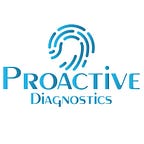Curbing Pathogenic Outbreaks Using Novel Point-of-Need Technologies
The need for testing at various points-of-need came to the spotlight of the current diagnostics debate due to the recent COVID-19 pandemic. Such testing, if deployed on a wide scale, can be utilized to target various biomarkers, from the structural proteins of a pathogen to a variety of immune system biomarkers, which could provide a range of highly valuable data and greatly aid in reducing the negative repercussion of any given outbreak.
While molecular and immunoassay testing at various points-of-need promises to unravel a whole range of value propositions in the world of personalized healthcare and well-being, their need came to the spotlight of current diagnostics debate like never before, due to the recent novel coronavirus which as inflicted humanity as of late 2019. Therefore, before diving into the elaborate span of diagnostics applications that can be relevant at points-of needs, let us present a breakdown of how such capabilities could serve us in dealing with pandemics like the one brought about by the latest novel coronavirus SARS-CoV-2.
We may begin with the most intuitive usage, which pertains to the targeting of structural proteins of a given pathogen to differentiate between infected and uninfected individuals. For this, a pathogen needs to be researched and deciphered to open-source data of its protein composition and the reagents needed for its detection. Once realized, typically within several weeks of the recognition that a new outbreak is upon us, testing can begin to be rolled out in high frequency. This is important to reaffirm that negative test results are indeed the result of non-infection, rather than non-detection of a low viral load that may characterize patient samples during the period of early incubation. Proactive Diagnostics’ portable and highly affordable solution can make testing available in many points-of-need (local pharmacies, transport hubs, workplaces, schools, or even peoples’ homes) allowing for meeting this demand with ease.
The second type of test which has received extensive media coverage is serological antibody testing — the targeting of proteins produced by the patient’s immune system in response to infection. Wide deployment of this test can aid in deducing information about the spread and potential rate of immunity in the population and allow blood donors to provide antibody-rich serum to critically ill patients. It is worth mentioning that this task is not as straightforward as it may initially sound, as antibodies can be highly specific from one person to the next and bear similarities to antibodies produced by the body to other viruses of the same family, that a patient had been previously exposed to. Therefore, in order to provide specific enough detection, it would be ideal to test for several proteins simultaneously (multiplexing), to test for the presence of all relevant proteins and rule-out the presence of irrelevant ones. Proactive Diagnostics’ 32-plex chip, which allows us to simultaneously target many proteins, can eliminate the false-positives and false-negatives associated with the complexity of such testing and is where our point-of-need solution truly stands out.
But the added value of multiplexing does not stop there. It goes much further and allows us to venture into what is almost entirely uncharted territory — deciphering the many signals communicated to us by our immune systems. These signals are too many to begin making sense of without longitudinal data gathered from diverse population samples and analyzed through AI and machine learning, intersected with data about clinical outcomes and with data that tracks the impact of various prescribed interventions. As such, it is one of the most ambitious goals laid out by immunologists going into the 21st century.
The general idea is the monitoring of key, indicative biomarkers in individuals’ immune systems to produce personalized actionable data for any given individual. To arrive at such sets of indicative biomarkers, some substantial studies have already been produced. One such study is the 1,000 immunomes project performed at Stanford University, which, with regards to COVID-19, has allowed researchers to arrive at a panel of biomarkers that can serve as a risk stratification index. This means that by targeting certain biomarkers in ones’ immune system, researchers will be able to anticipate the severity of illness in different individuals if infected and allow for the optimization of healthcare resources allocation and for deciding on more specific social distancing guidelines.
Indeed, the insights that can be derived from the almost infinitely complex endeavor of decoding human immune systems will grow increasingly nuanced and meaningful as more data is gathered and analysis applied. Monitoring Chronic Inflammation biomarkers, for example, could provide us with great value in personalizing dietary, medicinal, and lifestyle interventions for a broad range of conditions and illnesses. To stay on point — we can begin to imagine, in the case of COVID-19, how valuable such testing could be if the tools to deploy it on a wide scale were currently available.
Proactive Diagnostics is working diligently, along with several partners and investors, to utilize our rapid point-of-need detection capabilities, coupled with our unique multiplexing feature, to make such solutions widely available, in order to better contain future pathogenic outbreaks, and not least so, to enable increasingly informed and personalized healthcare and well-being worldwide.
Click here to read about our research and development into the field of System Chronic Inflammation.
Click here to read about how the current COVID-19 pandemic has crystallized the need for point-of-care diagnostics.
Click here to read about what a robust point-of-care solution should look like.
